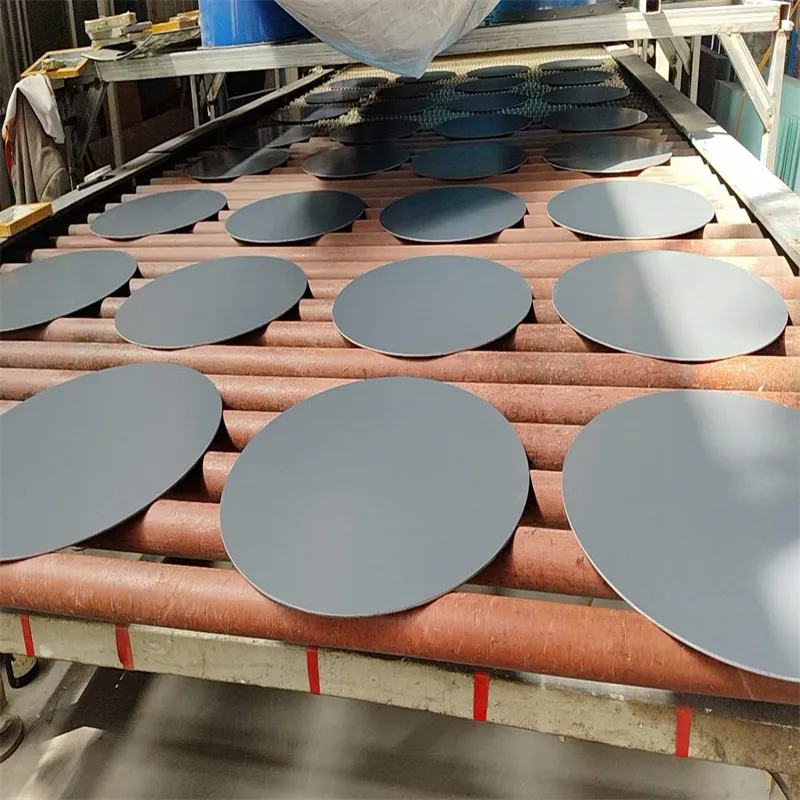Dec . 04, 2024 09:54 Back to list
6mm float glass
Understanding 6mm Float Glass Characteristics, Applications, and Benefits
Float glass is a type of glass that is manufactured using the float process, a technique that involves floating molten glass on top of molten tin to create a perfectly smooth and flat surface. A thickness of 6mm is common in various applications, making 6mm float glass a widely used material in the construction and design industries. This article will explore the characteristics, applications, and benefits of 6mm float glass.
Characteristics of 6mm Float Glass
One of the defining traits of float glass, particularly 6mm float glass, is its optical clarity. The float process produces glass that has minimal distortion, allowing for high visibility and transparency. This clarity is crucial for architectural designs that require unobstructed views and aesthetic appeal.
6mm float glass also offers strength and durability. While it is not as thick as other types of glass, such as tempered or laminated glass, its thickness is sufficient for many applications. It can withstand moderate pressure and is resistant to use in a variety of environments, although it is important to note that it can break under significant force. The glass is also chemically inert, meaning it does not react with substances it may come into contact with, making it a safe choice for many applications.
Another key characteristic is its light weight compared to thicker glass. This makes transportation, handling, and installation more manageable, reducing labor costs and time.
Applications of 6mm Float Glass
6mm float glass is versatile, with applications spanning residential, commercial, and industrial sectors
. One of the most common uses is in windows and doors. The glass provides excellent insulation properties while allowing natural light to penetrate buildings, enhancing interior environments and reducing the need for artificial lighting.In commercial spaces, 6mm float glass is often used for shopfronts, display cases, and partition walls. Its aesthetic appeal contributes to modern architectural designs, promoting transparency and fluidity between indoor and outdoor spaces.
6mm float glass

The glass also finds application in furniture design. It is frequently used in tabletops, shelves, and cabinets, adding a touch of elegance and sophistication to home and office interiors. Its clear surface allows for creative displays beneath the glass, making it an attractive choice for showcasing decorative items or collectibles.
Another exciting application is in the automotive industry, where 6mm float glass is used in certain types of vehicle glazing. Although may not be suitable for windshield use, it can be utilized effectively in side and rear windows, offering a balance between safety and visibility.
Benefits of Using 6mm Float Glass
The benefits of 6mm float glass extend beyond its physical characteristics. One significant advantage is its affordability. Compared to specialty glass types, 6mm float glass is often a more cost-effective option without sacrificing quality or appearance. This makes it an attractive choice for budget-conscious projects.
Additionally, its flexibility in use allows designers and architects more freedom in their plans. The glass can be easily cut and fabricated to fit various designs and configurations, offering versatility in both residential and commercial projects.
Another benefit is its ease of maintenance. The smooth surface of 6mm float glass makes it easy to clean, and its resistance to staining and corrosion ensures it maintains its clarity and appearance over time.
Conclusion
In summary, 6mm float glass represents a balance of aesthetic appeal, functionality, and affordability. Its characteristics make it suitable for a wide range of applications, from architectural designs to furniture and automotive glazing. With the increasing emphasis on natural light and open space in modern design, the popularity of 6mm float glass is likely to continue growing, cementing its place as a staple material in the glass industry. Whether for commercial or residential use, the benefits it offers make it a worthwhile investment for many projects. As technology advances and new methods of glass production are developed, the future may hold even more innovative uses for this timeless material.
-
Safety and Style with Premium Laminated Glass Solutions
NewsJun.24,2025
-
Reinvents Security with Premium Wired Glass
NewsJun.24,2025
-
Premium Float Glass Line for Modern Architecture
NewsJun.24,2025
-
Low Emissivity Glass for Energy-Efficient Architecture
NewsJun.24,2025
-
High-Performance Insulated Glass Solutions for Modern Architecture
NewsJun.24,2025
-
Elevates Interior Style with Premium Silver Mirror
NewsJun.24,2025
Related PRODUCTS














